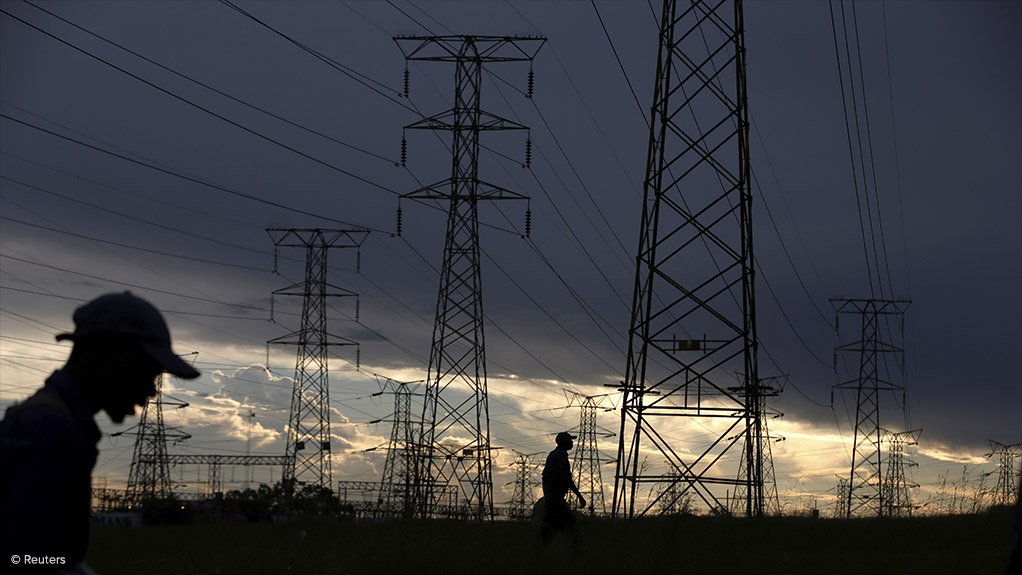/ MEDIA STATEMENT / The content on this page is not written by Polity.org.za, but is supplied by third parties. This content does not constitute news reporting by Polity.org.za.
ActionSA has, today, submitted our objections to the Integrated Resources Plan (IRP) – government’s energy plan tabled in 2023 – during a picket outside the Department of Mineral Resources and Energy (DMRE) Headquarters in Pretoria. We reject the IRP in its current form, as it fails to address South Africa’s devastating energy crisis with any sense of urgency, condemning us to load shedding until at least 2030.
Load shedding, a euphemistic term for rolling blackouts, remains one of the biggest self-made disasters by the ruling party as it destroys our economy and kills thousands of jobs every year. Furthermore, the notion that load shedding has improved is complete nonsense. In 2023, South Africans experienced 332 days of rolling blackout, with a mere 33 days without rolling black outs in an entire year. This is the worst load shedding we have ever experienced, despite the government burning R24.3 billion worth of diesel in a desperate attempt to keep higher stages of load shedding at bay.
During the same period, however, the private sector and citizens added just short of 3,000 MW of solar power to the South African grid – equivalent to three stages less of load shedding. The bottom line is that 17 years since load shedding was first introduced in 2007, the ruling party has failed to make the investments necessary to solve the problem, leaving the private sector and citizens to take action and to fix the problem.
This is why ActionSA’s nine-point plan to end load shedding in South Africa once and for all is focussed on unleashing the potential of Independent Power Producers in a competitive energy market, while taking measures to fix a broken Eskom.
Our nine-point plan includes the following interventions to fix the energy crisis:
Bring an end to cadre deployment at Eskom: Ensure that the entity is staffed with highly skilled staff who are appointed based on merit and competency, not political affiliation.
Combat crime in the energy system: We will improve security measures to protect South Africa’s energy grid against cable theft and infrastructure damage. Under ActionSA, vandalism of public property would be classified as economic sabotage, and criminally prosecuted.
Shield critical services from rolling blackouts: We will ensure that hospitals, clinics, fire stations, and police stations are spared from load-shedding so these frontline services can be provided uninterrupted.
Decentralise the energy market: Decentralised microgrids are the future of energy, especially for rural communities. We will incentivize municipalities to decrease their reliance on Eskom by utilizing microgrids powered by renewable energy sources.
Establish a competitive energy market: We will open the market to independent power producers to generate electricity in a competitive energy market to increase South Africa’s electricity supply.
Harness solar power: We will provide tax incentives for solar panel installation, and we will invest in supplying low-income houses with universal access to rooftop solar panels and solar-powered geysers.
Transition to renewable energy: We will use more renewable energy sources in our energy system to promote environmental sustainability while safeguarding communities reliant on the coal mining industry for survival.
Promote public participation: We will engage with communities affected by the renewable energy transition to ensure that the needs of our people and economy are always prioritised.
Enhance skills development: We will introduce specialised training programmes that focus on building the skills needed to maintain South Africa’s energy grid, now and in the future.
ActionSA knows that this plan would easily be able to end load shedding where the ruling party has failed in the past, as we have seen real-world examples of where it has been implemented. During a visit to Free State in February, I met with the team from Rural Free State (Pty) Ltd, (known as RFS) in Frankfort, which is the electricity distributor in the region on behalf of the Mafube Local Municipality.
RFS is currently halfway through a 25-year contract to manage electricity distribution and collect revenue in the municipality and has invested heavily in new infrastructure to ensure a stable electricity supply. It has constructed a solar farm which generates 4.2 MW of electricity, almost 75% of Frankfort’s electricity requirements, which means the town is slowly becoming load shedding-free. And once the contract with the Mafube Local Municipality ends, all infrastructure developed by RFS will become the property of the municipality.
This is a real-world example of how the private sector has stepped up fix load shedding where government could not. Since taking over the electricity distribution and revenue collection, losses have dropped from 50% to 5%, with the remaining 5% largely being of a technical nature.
ActionSA believes this model can be successfully rolled out in municipalities across the country as a viable economic model to ensure a stable electricity supply to residents to ensure that jobs are protected. If the state works together with the private sector, we can overcome the myriad challenges facing the country. But, for that to happen, we will need to take action at the ballot box on 29 May 2024 and remove the ruling party from government who have plunged us into the current crisis.
Issued bActionSA President Herman Mashaba
EMAIL THIS ARTICLE SAVE THIS ARTICLE ARTICLE ENQUIRY
To subscribe email subscriptions@creamermedia.co.za or click here
To advertise email advertising@creamermedia.co.za or click here











